This content has been archived. It may no longer be relevant
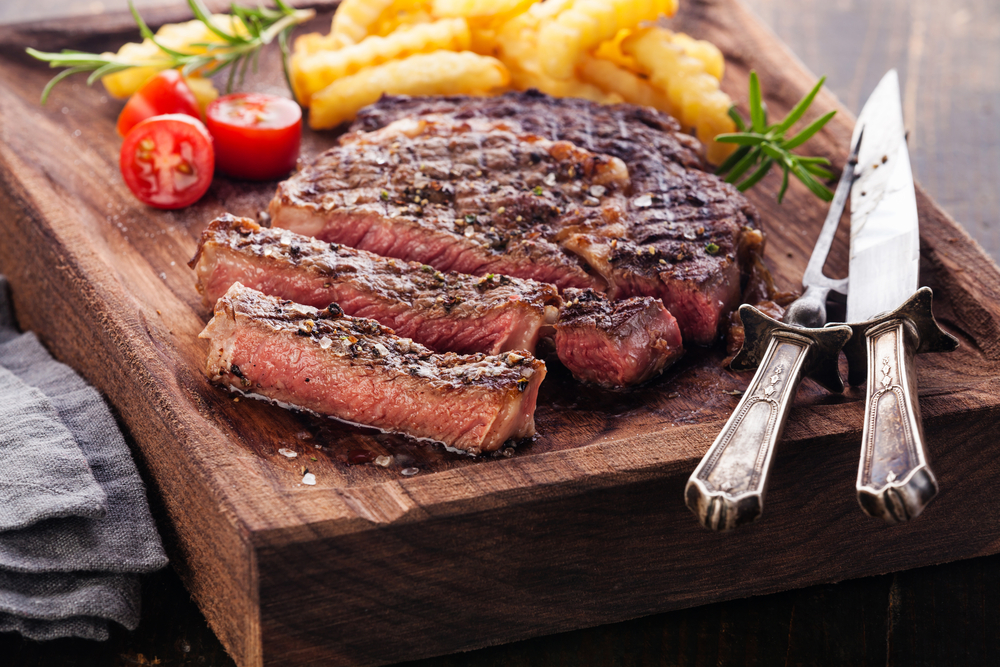
If you’re into grilling, chances are that you love a juicy steak after it has been seared and rested before serving.
Second in popularity only to the ever-reliable hamburger, steak is a grilled classic, but is it good for you?
If you want to make better food choices you’ve probably asked the question; is grilled steak healthy?
Not only is steak safe to eat, but it can also have benefits when enjoyed in moderation as part of a balanced diet.
Let’s look at the details and see how you can enjoy a steak from your grill, guilt-free.
The Benefits of Grilled Steak
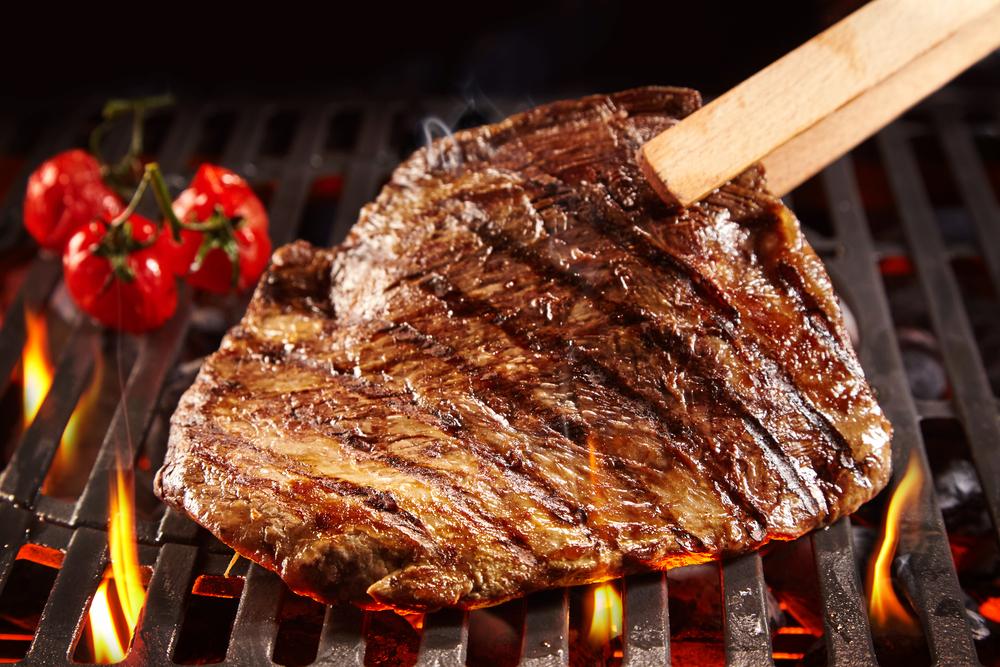
Grilled steak, cooked to perfection with its juicy and flavorful taste, is a culinary delight that offers numerous benefits.
Here are some of the benefits of enjoying grilled steak.
- Rich in Protein. Grilled steak is an excellent source of high-quality protein. Protein is an essential macronutrient that plays a crucial role in building and repairing tissues, including muscles, bones, and skin. A serving of grilled steak can provide a significant amount of protein, helping to meet your daily protein requirements.
- Abundant in Vitamins and Minerals. Steak is a good source of various vitamins and minerals, including vitamin B12, vitamin B6, iron, zinc, and selenium. Vitamin B12 is important for nerve function and DNA synthesis, while vitamin B6 is essential for brain development and immune function. Iron is crucial for carrying oxygen in the blood, while zinc and selenium are essential for a healthy immune system.
- High in Healthy Fats. While steak is often associated with being high in saturated fats, it also contains healthy fats, such as monounsaturated fats and omega-3 fatty acids. Monounsaturated fats are known to be heart-healthy and can help reduce LDL (low-density lipoprotein) cholesterol levels, which is often referred to as “bad” cholesterol. Omega-3 fatty acids have anti-inflammatory properties and are beneficial for brain health.
- Excellent Flavor and Texture. Grilling steak can create a deliciously smoky and caramelized crust on the outside, while retaining the juicy and tender texture on the inside. The charred flavors and appealing texture of grilled steak can make it a favorite among meat lovers, adding a unique and satisfying dining experience.
- Versatility in Cuts and Cooking Methods. Grilled steak offers versatility in cuts and cooking methods, allowing you to choose from a wide variety of cuts, such as ribeye, sirloin, filet mignon, and more, and experiment with different marinades, rubs, and seasonings. Grilling can be done using various techniques, such as direct grilling, indirect grilling, or searing, giving you options to suit your taste preferences and cooking style.
- Social and Cultural Value. Grilled steak often holds a special place in social gatherings and cultural traditions, such as barbecues, cookouts, and family gatherings. Enjoying grilled steak with family and friends can be a pleasurable and communal experience, creating cherished memories and bonding moments.
- Nutrient-Dense Option. When consumed as part of a balanced diet, grilled steak can be a nutrient-dense food choice. It provides essential nutrients in a relatively small portion, making it a good option for those who are looking to meet their nutrient requirements while managing their overall caloric intake.
- Supports Muscle Building. Protein-rich grilled steak can support muscle building and repair, making it a popular choice among athletes, bodybuilders, and individuals engaging in regular exercise. The amino acids present in steak are vital for muscle protein synthesis, helping to promote muscle growth, strength, and recovery after exercise.
In conclusion, grilled steak can offer numerous benefits, including being a rich source of protein, vitamins, and minerals, providing healthy fats, offering flavor and texture, allowing versatility in cuts and cooking methods, having social and cultural value, being a nutrient-dense option, and supporting muscle building.
As with any food, moderation and balance are key, and it’s important to consider individual dietary needs and preferences when incorporating grilled steak into your diet.
What Makes Grilled Steak Healthy?
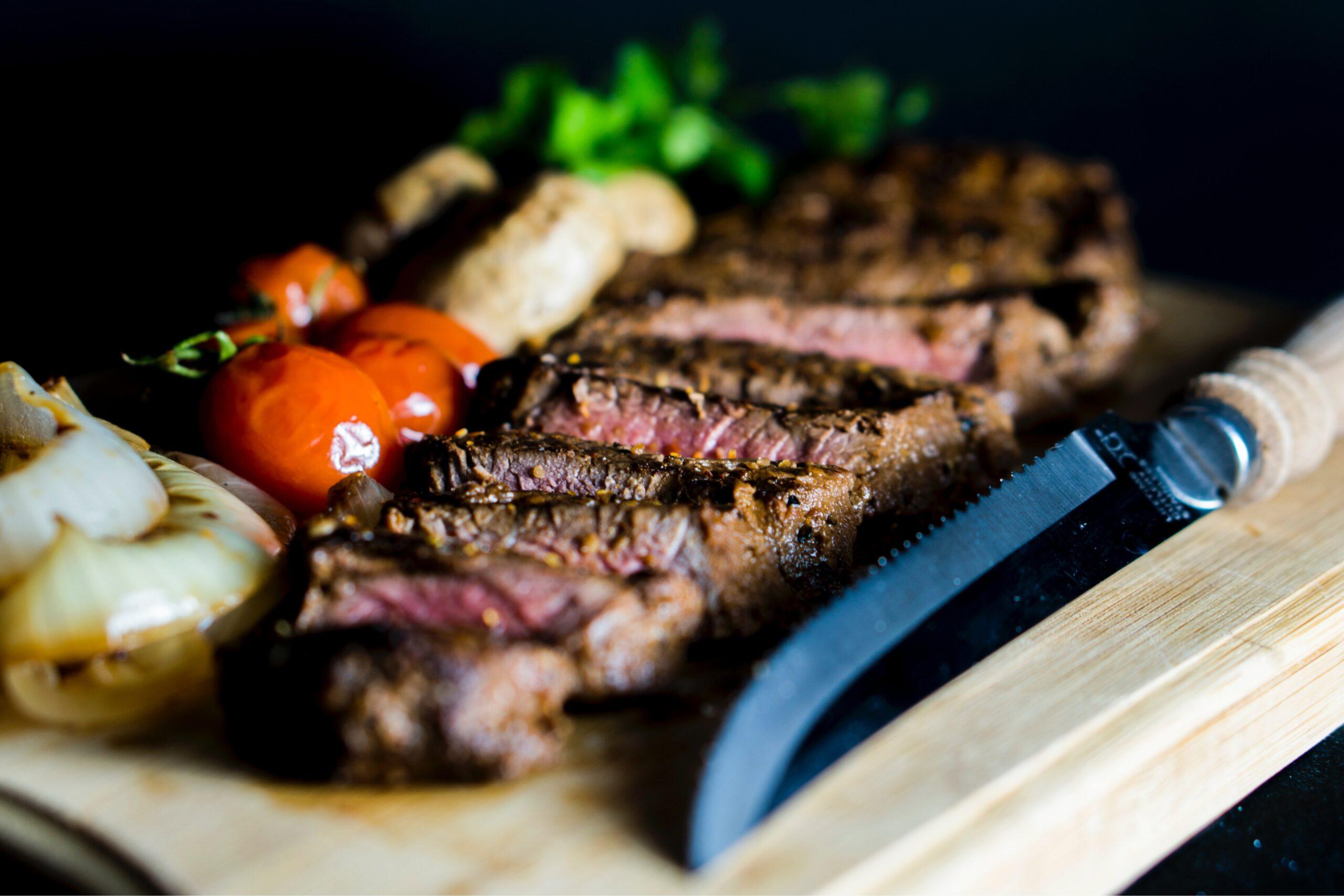 Due to the differences in cooking methods, grilled steak is better than cooked in a pan.
Due to the differences in cooking methods, grilled steak is better than cooked in a pan.
When cooking steak in a pan on your stovetop, you’ll probably add a significant amount of oil or even baste in butter.
This adds more calories to what is already a dense food, which can result in too many calories and eventual weight gain.
Adding butter and too much oil may also cause problems with cholesterol and heart health.
Grilled food is inherently healthy.
When you cook on the grill, the excess fat drips down onto the coals or gas burner shields and is vaporized.
This vapor is reincorporated into food as a crust on the sear, making the steak leaner but even more flavorful.
How to Make Lean Steak Tender with the Perfect Cooking Time
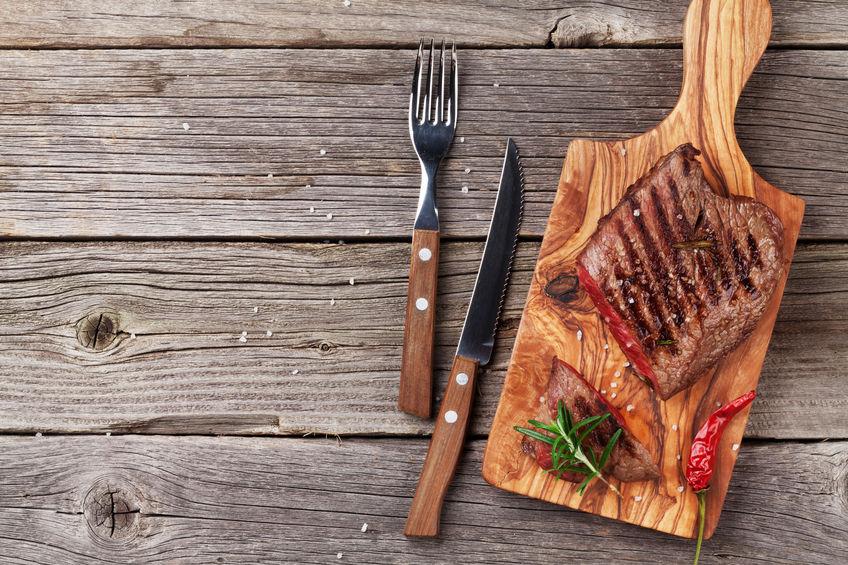
Cooking lean steak to perfection requires attention to detail, proper preparation, and the right cooking techniques.
Here are some tips on how to make lean steak tender with the perfect cooking time.
- Choose the Right Cut. Selecting the right cut of lean steak is crucial for achieving tenderness. Some popular lean cuts of steak include filet mignon, sirloin, flank steak, and strip steak. These cuts tend to be less marbled with fat, but can still be tender and flavorful when cooked properly.
- Tenderize the Meat. Tenderizing the meat can help break down the muscle fibers and make the steak more tender. You can tenderize the meat by using a meat mallet to pound it gently or by using a marinade that contains acidic ingredients like vinegar, citrus juice, or yogurt. Just be sure not to overdo it, as excessive tenderizing can result in mushy meat.
- Season Well. Seasoning the steak with salt and pepper before cooking helps to enhance the flavor of the meat. You can also use other herbs, spices, or a dry rub to add additional flavor. Let the steak sit at room temperature for about 30 minutes after seasoning to allow the flavors to penetrate the meat.
- Optimal Cooking Temperature. Cooking lean steak to the correct temperature is crucial for achieving the desired level of doneness and tenderness. Use a meat thermometer to ensure accurate cooking,the Meater Plus is one of the best meat thermometers on the market and it’s well worth the investment. For medium-rare, the internal temperature should be around 130-135°F, medium should be 140-145°F, and medium-well should be 150-155°F. Avoid overcooking, as it can result in dry and tough meat.
- Rest the Meat. Allowing the cooked steak to rest before slicing is an essential step. Resting helps the juices redistribute and settle in the meat, resulting in a more tender and juicy steak. Tent the steak with aluminum foil and let it rest for about 5-10 minutes before slicing.
- Proper Cooking Technique. The cooking technique you choose can impact the tenderness of the lean steak. Grilling, pan-searing, and broiling are popular methods that can result in deliciously tender steak. For grilling, use direct high heat for searing and then move the steak to indirect heat to finish cooking. For pan-searing, use a hot skillet with oil or butter and sear the steak on both sides before transferring to the oven to finish cooking. For broiling, preheat the broiler, place the steak on a broiler pan or oven-safe skillet, and broil for a few minutes on each side.
- Slice Against the Grain. When slicing the cooked steak, be sure to cut against the grain for maximum tenderness. The grain refers to the direction of the muscle fibers in the meat. Cutting against the grain helps to shorten the muscle fibers, resulting in a more tender bite.
By following these tips, you can make lean steak tender with the perfect cooking time, resulting in a flavorful and delicious meal.
Remember to experiment with different cuts, seasonings, and cooking techniques to find your favorite way to enjoy lean steak.
Is Grilled Steak Healthy? The Final Word
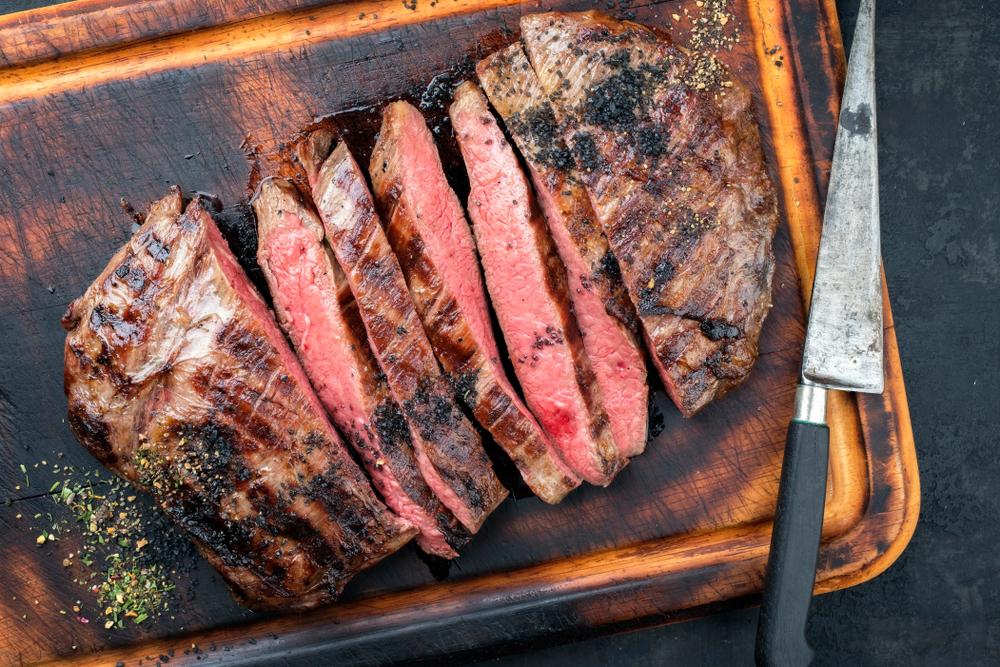 You’ve asked one of the most common questions that home cooks ask: is grilled steak healthy?
You’ve asked one of the most common questions that home cooks ask: is grilled steak healthy?
The answer is yes, as long as you enjoy it in moderation.
Like any other type of food, Steak, like any other type of food, should be enjoyed within a balanced diet of fresh vegetables, fruit, and grains.
If you have special dietary requirements due to a health condition, check with your doctor first.
For some people with too much iron in the blood, it is recommended to cut back on steak and consume fewer meals with red meat.
It all depends on your circumstances.
Enjoy grilled steak.
When you stick to moderation and choose lean cuts, you’ll enjoy the rich flavor with plenty of protein and micronutrients.
